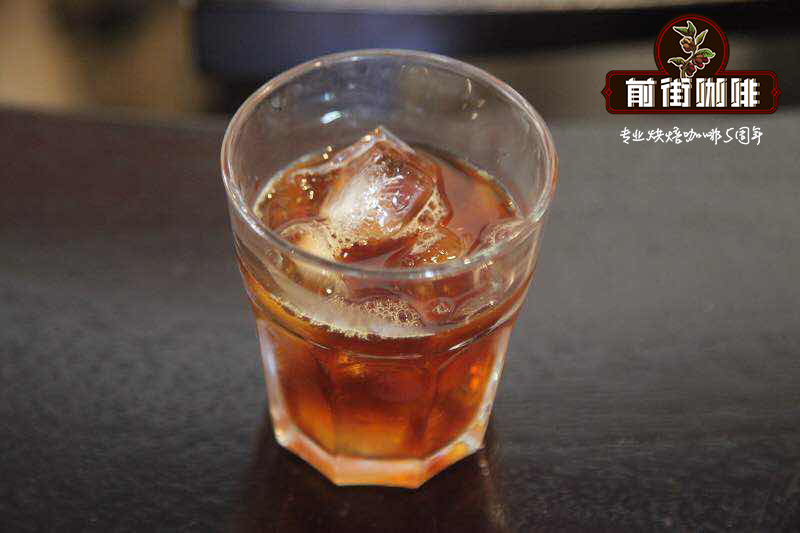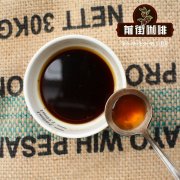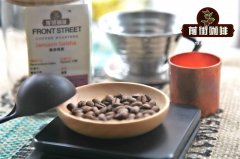Introduction to Blue Mountain Coffee Manor in Jamaica (2): Sherwood Forest Manor

Professional coffee knowledge exchange more coffee bean information please follow the coffee workshop (Wechat official account cafe_style)
In 1728, the then British Governor Nicholas Lowe Sir Nicholas Lawes imported coffee from French Martinique Island to Jamaica. Because the local climate was very suitable for growing coffee beans, Jamaica exported 83000 pounds of high-quality coffee nine years after its introduction. The Blue Mountain Coffee producing area is located in the east of Jamaica. Only those growing in this area at an altitude of 3000 to 5500 feet are authentic [Jamaican Blue Mountain Coffee] (Jamaica Blue Mountain). Other coffee growing at an altitude of 1500 to 3000 feet can only be called [Jamaican Alpine Coffee] (Jamaica High Mountain). Coffee grown below 1500 feet above sea level is Jamaica Supreme or Jamaica Low Mountain. Coffee growing above 5500 feet is not allowed in conservation forests.
The serious efforts made by the Government were mainly to increase coffee bean production and to build a central coffee processing plant to facilitate coffee processing and raw bean grading, which did improve the quality, but not very successfully. Canada, the largest buyer of Jamaican coffee in 1943, still could not accept this quality. In 1944, the Jamaican government set up a central coffee washing plant, where all coffee to be exported had to be processed and graded. Only then did the quality of Jamaican exported coffee beans get better. The Jamaica Coffee Authority was established in June 1950, officially responsible for improving and maintaining the quality of exported coffee beans. There are currently five government-certified 100% Blue Mountain Coffee processing plants: Wallenford,Mavis Bank,Old Tavern Old Inn, Silver Hill,Moy Hall.
Blue Mountain Coffee is a high-quality Caribbean coffee, which, like other countries, has been damaged by natural hurricanes. It has seen too many damaged bean cups and tastes like kale. Prices are always affected or even cannot be sold in years hit by hurricanes. In addition, the hot and humid environment of island countries often makes coffee moth-eaten or white spots, and coffee beans with real zero defects are always rare. Coupled with the fact that the Japanese buy 70% of the Blue Mountain Coffee, the price remains high. The real high altitude 100% pure Blue Mountain Coffee is produced by the official processing plant in Jamaica. The coffee is packed in a special barrel and has a certificate on each barrel.
Sherwood Forest:Sherwood Forest, composed of Sherwood Forest & Eccleston Plantations, Upper New Battle and Lower New Battle, is a rare century-old traditional farm in the Blue Mountains. It has grown coffee since the early 18th century, covering a total area of about 1000 acres. Sherwood's coffee trees are developed according to topography, sunshine, seasonal mountain springs and rich volcanic soil, so that each separate planting area can provide the best growing environment for coffee trees. Sherwood has the largest flat high-altitude planting platform in Blue Mountain, which is like the jewel of Sherwood, and the locals are known as "Big Level". The platform is located above a slope up to 4400 feet above sea level and covers an area of 100 acres. Big Level's rich, crimson volcanic soil, coupled with the gentle caress of cold clouds floating down from the top of the blue mountain, make the coffee produced in this area one of Sherwood's proudest high-quality blue peas. Sherwood itself has a perfect washing plant, which is now focused on handling coffee cherries for RSW and has previously treated coffee cherries for other estates.
Important Notice :
前街咖啡 FrontStreet Coffee has moved to new addredd:
FrontStreet Coffee Address: 315,Donghua East Road,GuangZhou
Tel:020 38364473
- Prev

Jamaica Blue Mountain Coffee Manor introduction: Resource Manor
Professional coffee knowledge exchange more coffee bean information please follow the coffee workshop (Wechat official account cafe_style) Blue Mountain Coffee producing Jamaica, named after the Blue Mountains surrounded by the Caribbean Sea. Sour, sweet, bitter taste are very harmonious and have excellent flavor and aroma, suitable for individual coffee, suitable for moderate roasting. The Blue Mountains are located on the island of Jamaica (Jamaica)
- Next

Introduction to Blue Mountain Coffee Manor in Jamaica (3): Whitfield Hall Manor
Professional coffee knowledge exchange more coffee bean information please pay attention to the coffee workshop (Wechat official account cafe_style) Blue Mountain Coffee (English: Jamaican Blue Mountain Coffee), is produced in Jamaica Blue Mountain coffee beans brewed coffee, pure Blue Mountain Coffee is very rare Jamaica Blue Mountain is the highest mountain in the Western Caribbean (2256 meters high), top blue
Related
- Does Rose Summer choose Blue, Green or Red? Detailed explanation of Rose Summer Coffee plots and Classification in Panamanian Jade Manor
- What is the difference between the origin, producing area, processing plant, cooperative and manor of coffee beans?
- How fine does the espresso powder fit? how to grind the espresso?
- Sca coffee roasting degree color card coffee roasting degree 8 roasting color values what do you mean?
- The practice of lattes: how to make lattes at home
- Introduction to Indonesian Fine Coffee beans-- Java Coffee producing area of Indonesian Arabica Coffee
- How much will the flavor of light and medium roasted rose summer be expressed? What baking level is rose summer suitable for?
- Introduction to the characteristics of washing, sun-drying or wet-planing coffee commonly used in Mantenin, Indonesia
- Price characteristics of Arabica Coffee Bean Starbucks introduction to Manning Coffee Bean Taste producing area Variety Manor
- What is the authentic Yega flavor? What are the flavor characteristics of the really excellent Yejasuffi coffee beans?

